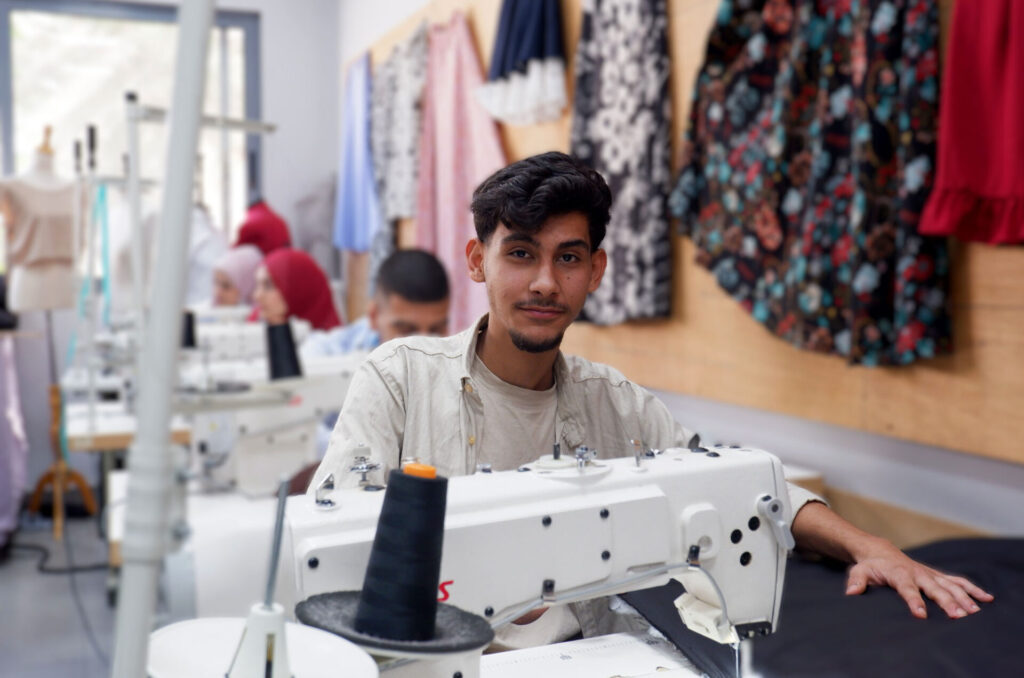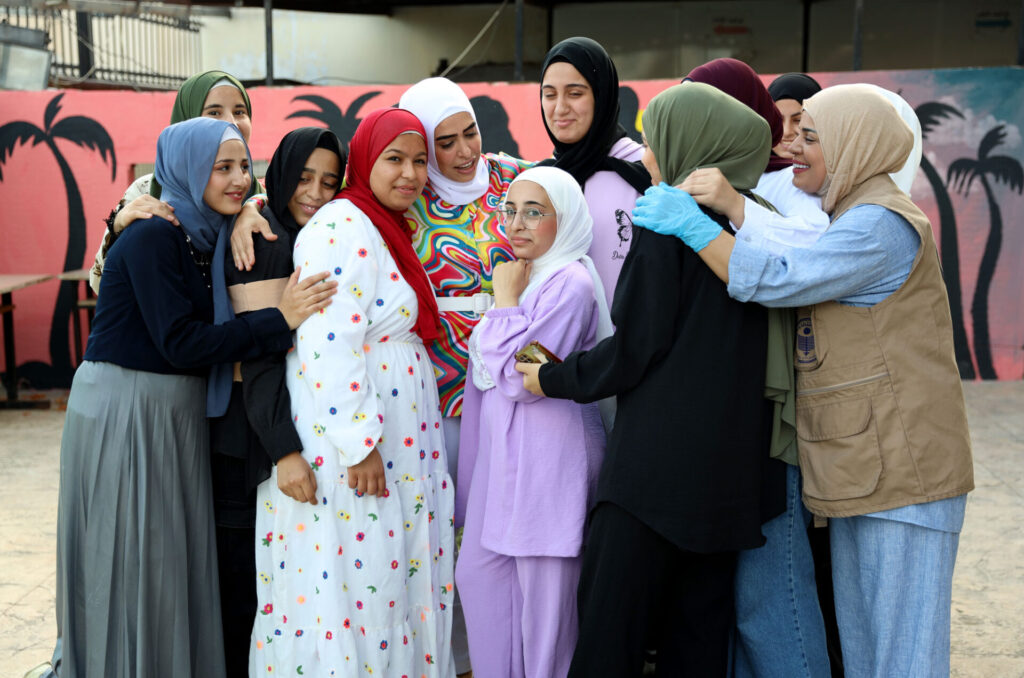Aug, 2012
For most children, teachers are their role models, someone who nourishes them mentally and emotionally while challenging them to be great.
For some teachers, that comes naturally, but gaining expertise is always a plus.
Anera hosted training sessions for 27 remedial education teachers on active learning methodologies in Nahr El Bared and Beddawi Palestinian camps in northern Lebanon. The teachers benefitted from workshops and on-the-ground training sessions that taught them innovative ways of reaching their remedial education and learning-support students. Ghassan Kanafani Cultural Foundation is one of the participating organizations that already has seen benefits from the sessions.
“The difference between a normal class and remedial education is that these students struggle in a specific area,” explains Roudaina Wehbeh who has been at Ghassan Kanafani for just over a year. “They are smart children, but they might have a problem when speaking or in a particular subject area.
Manal Mosleh has been teaching for 12 years but says she gained a lot from the training. “All of the ideas and techniques were very new to us. They engage the students in new ways that makes learning less boring and more activating.”
Along with sessions on active learning and student-focused methodologies, the teachers participated in courses from the British Council to enhance their English language skills and also see how they could use similar methods to teach English. Roudaina, for one, says she plays repetition games with her students to encourage them to speak out loud while memorizing their vocabulary.
Remedial education teachers also act as a bridge between the child and their parents. “Sometimes the children do not get the attention they need at school and their parents want them to succeed but are unable to help them,” says Manal Wehbeh, who has been at Ghassan Kanafani for five years.
After Nahr El Bared camp was destroyed during fighting in 2007, emphasizing individual attention in the classroom was a luxury. At the Ghassan Kanafani center, for example, 200 students were crammed into a single room for their lessons. Teacher Jamal Badr remembers trying to teach over the loud din of the crowded classrooms. Today after renovations, the center has plenty of room and quiet for better concentration. Now, Jamal’s students are excited to come to class and work with her. She says they are benefitting from the new teaching methods. Jamal explains. “They are our children. We ask each other ‘how are your kids doing?’ because we play an important role in their lives and they play an important role in ours.”
After finishing their classes, teachers participating in Anera’s training sessions celebrated at a festive certificate ceremony in the shade of cherry trees on Mount Lebanon. Later they enjoyed an afternoon of hiking and some relaxation in one of the country’s most picturesque settings, a nice break from their tense and tumultuous life in a refugee camp.
Anera organized the training under the Enhancing Non-Formal Education (ENFE) Program, sponsored by Anera’s partner Reach Out to Asia (ROTA). More than 200 children from grade 2 to 6 have benefitted from the learning support and remedial education in the 2011-2012 school year, which was implemented with four local partners in Nahr El Bared. The youth-oriented program also uses vocational training for active learning and non-formal education and sports to develop life skills and personal development of youth.


